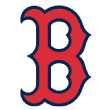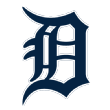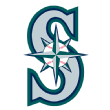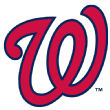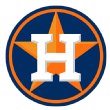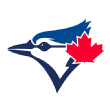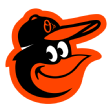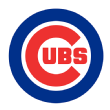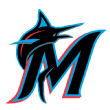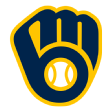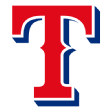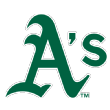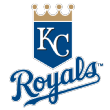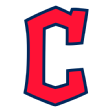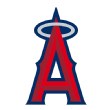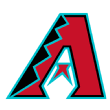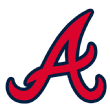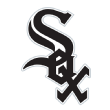30 teams, 30 bad deals: Revisiting the worst deadline trade your team ever made

It has been slow going on the trade front so far, but the past few years have shown us activity increasingly happens in the final hours before the July 31 MLB trade deadline hits at 4 p.m. ET. The fact that so many teams in the National League are still in the playoff race has also complicated things.
But there's also this: Front offices are increasingly wary of making a big mistake for what might just be a minor upgrade or a small chance at merely winning a wild card. Basically, they don't want to make a trade that ends up on a list like this one -- the worst deadline trade for all 30 teams.
The trade deadline as we know it really began in the early 1990s. By the 2000s, it became expected that your team would make a deal if you were in playoff contention. Now we spend the weeks leading up to the deadline speculating what might happen. Teams are smarter now, so a lot of these bad deals happened in the 1990s and 2000s. Maybe some more recent trades will eventually stand out --Chris Paddack from the Marlins to the Padres for Fernando Rodney in 2016, for example, or Felipe Vazquez from the Nationals to the Pirates, or last year's trade that sent Austin Meadows and Tyler Glasnow from the Pirates to the Rays for Chris Archer.
Time will tell. For now, a bad trade for every team (OK, two bad ones for the Mets).
The ultimate punch-in-the-gut trades
Boston Red Sox: Trade Jeff Bagwell to the Astros for Larry Andersen (Aug. 30, 1990)
Future WAR traded away: 79.9
WAR acquired: 3.8
The Red Sox actually have another deal that could be considered worse -- we'll get to that -- but this is the classic prospect-for-rental deal that backfired in a big way: a future Hall of Famer for 22 innings of a setup guy. The one that was arguably worse? In 1988, the Red Sox traded Curt Schilling and Brady Anderson to the Orioles for Mike Boddicker -- 115.3 of future WAR traded away. Boddicker did go 39-22 with the Red Sox and helped them win division titles in 1988 and 1990, so it wasn't a complete disaster, however, and the memory of the Bagwell deal is stronger (in part because Schilling never did anything for Baltimore).
Detroit Tigers: Trade John Smoltz to the Braves for Doyle Alexander (Aug. 12, 1987)
Future WAR traded away: 66.4
WAR acquired: 6.3
This is often cited as a win-win transaction because Alexander went 9-0 with a 1.53 ERA in 11 starts down the stretch for the Tigers. Let's cut through it though: It wasn't a win-win trade. Maybe if the Tigers had won the World Series instead of flaming out in the ALCS against the Twins, you could ignore that Smoltz went on to a Hall of Fame career. But you can't. So: bad trade for the Tigers; franchise-altering trade for the Braves.
Seattle Mariners: Trade Derek Lowe and Jason Varitek to the Red Sox for Heathcliff Slocumb (July 31, 1997)
Future WAR traded away: 58.1
WAR acquired: 0.4
The Mariners had a good team in 1997 and would win the AL West that year, but they had a terrible bullpen, driving Woody Woodward into a panic-driven deal that would haunt the Mariners and help the Red Sox break the curse in 2004. Slocumb had saved 31 games in 1996 but had a 5.79 ERA with nearly as many walks as strikeouts. For some reason, the Mariners decided this was the closer they needed. They gave up the first-round pick from 1994 in Varitek plus Lowe, who had already reached the majors. Legend has it that Red Sox GM Dan Duquette asked for Lowe or Varitek and Woodward misheard and agreed to both players.
Special meritorious note because the Mariners are particularly awful at deadline trades: David Ortiz to the Twins for Dave Hollins (Aug. 29, 1996)
Future WAR traded away? 55.3 ... most of that with the Red Sox, of course. Hollins played one month with Seattle.
Washington Nationals/Montreal Expos: Trade Cliff Lee, Grady Sizemore, Brandon Phillips and Lee Stevens to the Indians for Bartolo Colon and Tim Drew (June 27, 2002)
Future WAR traded away: 101.4
WAR acquired: 1.9
The Expos were under the stewardship of MLB at the time, after Jeffrey Loria had sold back the team (at a great profit) to purchase the Marlins from John Henry (who had bought the Red Sox). It was a grisly situation all around and with the Expos surprisingly in playoff contention, the front office made the calculated gamble that maybe it could secure a new stadium if the team made the playoffs (much like what happened in Seattle in 1995). So GM Omar Minaya traded three minor leaguers for Colon, a free agent at season's end. The Expos were 6 games out of first at the time of the trade, so the playoffs were going to be a long shot anyway. Colon pitched well, but the Expos finished 83-79 and the three minor leaguers turned out to be pretty good.
New York Mets: Trade Scott Kazmir and Jose Diaz to the Devil Rays for Victor Zambrano and Bartolome Fortunato and trade Jose Bautista to the Pirates for Kris Benson (July 30, 2004)
Future WAR traded away: 58.4
WAR acquired: 4.2
This was not a good day for the Mets and GM Jim Duquette. The Kazmir trade is famous in Mets lore as they traded away their best pitching prospect for a pitcher who was averaging 6.8 walks per nine at the time of the trade. In fact, Zambrano -- despite playing the final two months in the National League -- still led the American League in walks in 2004. Actually, he didn't even play the final two months as he made only three starts for the Mets before getting injured. He then went 7-12 in 2005 and missed most of 2006. Meanwhile, by 2006, Kazmir was an All-Star with Tampa Bay. What if the Mets had him in 2006, when they lost the NLCS to the Cardinals? Or 2007, when they missed the playoffs by one game? Or 2008, when they also missed by a game?
But that might not even have been the worst trade of the day. Earlier in the day, the Mets acquired Bautista from the Royals, then included him in the Benson trade. Benson would go 14-12 in his year-plus with the Mets and Bautista would eventually blossom after a trade to the Blue Jays. The 2004 Mets? They finished 71-91.
Houston Astros: Trade Ben Zobrist and Mitch Talbot to the Devil Rays for Aubrey Huff (July 12, 2006)
Future WAR traded away: 45.1
WAR acquired: 8.6
The Astros had been to the World Series in 2005 but were 44-46 at the All-Star break in 2006 when they decided they needed Huff to add some power to the lineup. Huff was a rental and would produce 0.2 WAR in his two-plus months with Houston (which missed the playoffs) before signing with Baltimore as a free agent. Zobrist was a 25-year-old hitting .327 in Double-A -- too old at that level to be considered much of a prospect. The Rays believed in the numbers and Zobrist exceeded even the highest of expectations with an outstanding career.
San Diego Padres: Trade Corey Kluber to the Indians as part of three-way trade with Cardinals, receive Ryan Ludwick (July 31, 2010)
Future WAR traded away: 33.1
WAR acquired: 0.2
No Fred McGriff? That 1993 trade with the Braves was a famous one -- 23.7 future WAR for three minor leaguers who would produce negative WAR in the majors -- but the Kluber trade is even worse. Kluber had a 3.45 ERA in Double-A at trade time but also had 136 strikeouts in 122 innings. Baseball America ranked him Cleveland's No. 26 prospect entering 2011, but he would add a little velocity and perfect that curveball and become a two-time Cy Young winner. Ludwick would hit .228 in 160 games for the Padres.
New York Yankees: Trade Jay Buhner to the Mariners for Ken Phelps (July 21, 1988)
Future WAR traded away: 23.1
WAR acquired: 1.0
As Frank Costanza says to George Steinbrenner, "What the hell did you trade Jay Buhner for? He had 30 home runs, over 100 RBIs last year, he's got a rocket for an arm, you don't know what the hell you're doing!"
It's not often that a deadline deal enters popular culture folklore, but this one did thanks to "Seinfeld." As Steinbrenner says on the show, his baseball people loved Ken Phelps -- a 33-year-old platoon DH who would hit 17 home runs for the Yankees over two seasons while Buhner would hit 307 for the Mariners.
Thanks for the painful reminder
Toronto Blue Jays: Trade David Cone to the Yankees for Marty Janzen, Mike Gordon and Jason Jarvis (July 28, 1995)
Future WAR traded away: 22.0
WAR acquired: minus-0.5
This is why you don't make intradivision trades. Cone was one of the best starters in the game, having won the Cy Young Award in 1994 with the Royals (who had traded him to the Blue Jays) and he'd finish fourth in 1995. Two of the three minor leaguers the Jays acquired never even reached the majors and Cone helped jump-start the Yankees dynasty, re-signing with them as a free agent after the 1995 season.
Baltimore Orioles: Trade Jake Arrieta and Pedro Strop to the Cubs for Scott Feldman and Steve Clevenger (July 2, 2013)
Future WAR traded away: 32.0
WAR acquired: 4.2
This was an interesting trade because Arrieta wasn't a prospect who then made good, but a major leaguer with a 5.46 career ERA over 63 starts at the time of the trade. He immediately turned things around in Chicago and became the 2015 Cy Young winner. Strop added more value to the Cubs. Feldman went 5-6 with the Orioles, who missed the postseason, and he then signed with the Astros as a free agent.
Chicago Cubs: Trade Josh Donaldson, Matt Murton, Eric Patterson and Sean Gallagher to the A's for Rich Harden and Chad Gaudin (July 8, 2008)
Future WAR traded away: 41.7
WAR acquired: 4.4
It would take five years before the Cubs realized the mistake on this one as Donaldson didn't break out until 2013. He had been a supplemental first-round pick in 2007 and was catching in Class A when the trade was made. With the A's, he eventually overhauled his swing and a move to third base helped him relax and he became the 2015 AL MVP (after a trade to the Blue Jays). The injury-prone Harden was great down the stretch with the Cubs in 2008 (5-1, 1.77 ERA in 12 starts), but he lost his one start in the division series as the Dodgers swept the Cubs.
Special Lou Brock note: The Cubs traded Brock to the Cardinals for Ernie Broglio on June 15, 1964 -- the trade deadline at the time. Brock would earn 41.8 WAR with St. Louis and make the Hall of Fame. Broglio went 7-19 for the Cubs over three seasons. The trade deadline in those days wasn't really like it is now, but if you want to make this the worst deadline trade in Cubs history, that works.
Miami Marlins: Trade Adrian Gonzalez, Ryan Snare and Will Smith to the Rangers for Ugueth Urbina (July 11, 2003)
Future WAR traded away: 42.2
WAR acquired: 3.3
You can argue this was the Marlins' version of the Gleyber Torres-for-Aroldis Chapman trade. Urbina was terrific down the stretch (3-0, 1.41, six saves) and had four saves in the postseason as the Marlins won the World Series. They gave up a future star for a ring -- although, as with Chapman, Urbina had a couple of touchy moments in the postseason, and it's worth noting Josh Beckett went all the way in the clinching Game 6. Gonzalez was the first overall pick in 2000, but he hit only five home runs in the upper minors in 2003, so at the time his star potential appeared limited. Indeed, the Rangers would trade him a few years later to the Padres and he became a five-time All-Star.
Milwaukee Brewers: Trade Nelson Cruz and Carlos Lee to the Rangers for Francisco Cordero, Kevin Mench, Laynce Nix and Julian Cordero (July 28, 2006)
Future WAR traded away: 44.8
WAR acquired: 9.6
The Rangers were .500 when this trade was made -- but just 1 games out of first place. Lee was an All-Star slugger heading into free agency, so the Rangers gave up the erratic Cordero and a couple of spare parts to get him -- oh, and had the Brewers throw in a Triple-A slugger. Cruz would become the headliner in the deal, and most of Cordero's remaining value came with the Reds, not the Brewers, after leaving as a free agent. (Don't give the Rangers full credit here though: They once removed Cruz from their 40-man roster before he finally broke out in 2009, so any team could have claimed him.)
Pittsburgh Pirates: Trade Aramis Ramirez and Kenny Lofton to the Cubs for Jose Hernandez, Bobby Hill and Matt Bruback (July 23, 2003)
Future WAR traded away: 41.4
WAR acquired: 1.1
The Pirates of this era drafted poorly, developed poorly and boy did they trade poorly. Lofton was veteran center-field insurance for the playoff-bound Cubs, but this trade was mostly about Ramirez for Hill. Ramirez was a young third baseman who had a monster 2001 and wasn't eligible for free agency until after 2006. Hill was actually a couple of months older than Ramirez. Ramirez would play 1,635 games in the majors after the trade. Hill would play 185.
Philadelphia Phillies: Trade Curt Schilling to the Diamondbacks for Travis Lee, Vicente Padilla, Omar Daal and Nelson Figueroa (July 26, 2000)
Future WAR traded away: 43.6
WAR acquired: 22.0
Schilling certainly had one of the most interesting trade histories of any great player ever. The Red Sox dumped him as a prospect, the Orioles traded him to the Astros in a terrible deal, the Astros traded him to the Phillies for Jason Grimsley, the Phillies traded him when he still had many peak seasons left and then the Diamondbacks traded him to the Red Sox and didn't really get anything back. The Phillies actually got some value back (although only 9.5 of that 22.0 WAR came with the Phillies) and 2000 would be the last of seven straight losing seasons, but none of the players in the Schilling trade were around by 2007, when they finally returned to the playoffs.
Colorado Rockies: Trade Andy Ashby, Brad Ausmus and Doug Bochtler to the Padres for Bruce Hurst and Greg Harris (July 26, 1993)
Future WAR traded away: 42.3
WAR acquired: minus-2.5
When the Padres held a fire sale in 1993, the expansion Rockies viewed it as an opportunity to acquire a couple of veteran pitchers. Unfortunately, Hurst and Harris were done as effective major leaguers. Ashby won 70 games for the Padres and became a two-time All-Star with them, and Ausmus had a long career as a defensive stalwart behind the plate.
On second thought, we'd like a do-over
Texas Rangers: Trade Kyle Hendricks and Christian Villanueva to the Cubs for Ryan Dempster (July 31, 2012)
Future WAR traded away: 21.4
WAR acquired: 0.2
Dempster went 7-3, albeit with a 5.09 ERA, in his two months with the Rangers. This was the year Texas blew a four-game lead on the A's with six to play to fall into the wild-card game -- which the Rangers promptly lost to the Orioles. Dempster started that six-game skid with a loss to the Angels (four runs in 5 innings) and he also started the season finale, a loss to the A's in which he gave up five runs in three innings. Hendricks wasn't much of a prospect because of his middling velocity, but the control artist has produced 19.0 WAR and counting so far for the Cubs.
Oakland A's: Trade Mark McGwire to the Cardinals for Eric Ludwick, T.J. Mathews and Blake Stein (July 31, 1997)
Future WAR traded away: 19.3
WAR acquired: 2.7
McGwire was to become a free agent after the 1997 season, so even though he was chasing the single-season home run record -- he would finish with 58 between the A's and Cardinals -- the A's traded him away for three pitchers in what seemed like a reasonable deal at the time. McGwire would sign a three-year, $28.5 million extension with the Cardinals before reaching free agency -- money the A's could have easily earned back in ticket sales the following season if Big Mac had hit 70 for them. More importantly, none of the three pitchers did anything for the A's. If then-GM Sandy Alderson had nailed this trade, maybe the Moneyball A's of the early 2000s win a couple of World Series.
Kansas City Royals: Trade Carlos Beltran to the Astros, receive Mark Teahen, Mike Wood and John Buck in a three-way trade with the A's (June 24, 2004)
Future WAR traded away: 44.9
WAR acquired: 7.8
Beltran was the big trade chip in 2004, a multitooled center fielder heading into free agency whom the Royals wouldn't be able to sign. So you can argue the Royals received three players for a guy who was going to leave anyway. Still, Buck was the best of the group, a journeyman catcher. When trading a guy like Beltran, you hope to hit the lottery. The Royals failed to do that and they would follow 2004 with eight more losing seasons in a row.
Los Angeles Dodgers: Trade Carlos Santana and Jon Meloan to the Indians for Casey Blake (July 26, 2008)
Future WAR traded away: 29.2
WAR acquired: 9.2
Santana had come out of nowhere to post huge numbers for Class A Inland Empire at the time of the trade, but had just started catching the year before so was considered a player without a position. Blake did help the Dodgers reach the NLCS in 2008 and was the team's regular third baseman the next two seasons, but the Indians clearly won the long-term WAR faceoff in this trade.
Cleveland Indians: Trade Drew Pomeranz, Alex White, Matt McBride and Joe Gardner to the Rockies for Ubaldo Jimenez (July 30, 2011)
Future WAR traded away: 9.8
WAR acquired: 2.8
No team might have more good deadline deals than the Indians. Not only are three of the other trades on this list in their favor (the Cliff Lee/Grady Sizemore/Brandon Phillips trade with the Expos, Carlos Santana from the Dodgers, Corey Kluber from the Padres), but you can also include two separate deals with the Mariners (Shin-Soo Choo for Ben Broussard, Asdrubal Cabrera for Eduardo Perez). Even the CC Sabathia trade turned out OK since they got Michael Brantley. They got Carlos Carrasco in a deadline deal for Lee.
The Jimenez trade wasn't so bad in terms of future value lost, but rates as a disappointing trade. It was the rare time the Indians actually traded prospects -- Pomeranz and White had been first-round picks -- to upgrade the current roster. Jimenez had a 5.11 ERA with Cleveland in 2011, went 9-17 with a 5.40 ERA in 2012 and was decent in 2013 (13-9, 3.30) as the Indians lost a wild-card game. Still, Pomeranz and White had a lot of trade value at the time and the Indians didn't cash in as well as they could have.
Los Angeles Angels: Trade Jean Segura, Ariel Pena and Johnny Hellweg to the Brewers for Zack Greinke (July 27, 2012)
Future WAR traded away: 18.2
WAR acquired: 39.7
The Angels, despite being a big-market team, have a curiously uninteresting trade deadline history, at least if you consider big wins or big losses interesting deadline deals. This was a rental and Greinke was fine down the stretch for them, but they still missed the playoffs. He signed with the Dodgers, so only 1.5 of that future WAR came with the Angels. Segura was a top prospect who became a two-time All-Star.
Cincinnati Reds: Trade Edwin Encarnacion, Josh Roenicke and Zach Stewart to the Blue Jays for Scott Rolen (July 31, 2009)
Future WAR traded away: 31.1
WAR acquired: 7.6
It's hard to completely criticize this one. Encarnacion was a bad third baseman, and with Joey Votto at first base there wasn't really room on the roster. Rolen did help the Reds reach the playoffs in 2010 and 2012 (although he had trouble staying healthy in his three-plus years in Cincinnati). Encarnacion, however, has hit 338 home runs since the trade.
San Francisco Giants: Trade Dave Burba, Mark Portugal and Darren Lewis to the Reds for Deion Sanders, Scott Service, John Roper, David McCarty and Ricky Pickett (July 21, 1995)
Future WAR traded away: 28.9
WAR acquired: 2.6
You don't remember Deion with the Giants? That's because he played only 52 games with them. He sat out the 1996 season and then returned to the Reds in 1997. The Giants didn't give up any big names, but all three players were still productive big leaguers while none of the five they acquired did much.
Arizona Diamondbacks: Trade Brad Penny, Vladimir Nunez and Abraham Nunez to the Marlins for Matt Mantei (July 8, 1999)
Future WAR traded away: 17.0
WAR acquired: 2.4
In just their second year of existence, the Diamondbacks were a playoff contender and needed a closer. Mantei was one of the first of the new breed of 100 mph flamethrowers (he would fan 99 in 65 innings in 1999) and saved 22 games for Arizona as it won the NL West before losing to the Mets in the division series. Mantei lost the clinching game when he served up Todd Pratt's walk-off home run. He battled injuries after that while Penny had some good years with the Marlins and Dodgers.
Tampa Bay Rays: Trade David Price to the Tigers in a three-way trade with the Mariners, receiveWilly Adames, Drew Smyly and Nick Franklin (July 31, 2014)
Future WAR traded away: 18.7
WAR acquired: 6.3
The worst trade in Rays history was when they selected Bobby Abreu from the Astros in the 1997 expansion and sent him to the Phillies for Kevin Stocker in a prearranged deal. But that came in November, not July. They haven't really had a notable bad deadline trade and this one has a lot of time to age in the Rays' favor, although Adames has really struggled at the plate this season. If you consider the Rays later dealt Smyly for Ryan Yarbrough and Mallex Smith, the trade evens out even more. The only argument is that Price was the big kahuna at the 2014 deadline and had another year of team control and the Rays could have done better than Adames (the Tigers got Matthew Boyd and Daniel Norris a year later for Price).
Some oldies, but goodies (er ... baddies?)
Atlanta Braves: Trade Brett Butler and Brook Jacoby to the Indians for Len Barker (Aug. 28, 1983)
Future WAR traded away: 62.4
WAR acquired: 0.4
Here's a fun older one. Barker was a hard-throwing but erratic right-hander with a 5.11 ERA whom the Braves acquired when they were a half-game up on the Dodgers in the NL West. (Remember when the Braves were in the NL West?) Barker went 1-3 in six starts and the Dodgers won the division. Butler went on to become one of the most underrated players of the 1980s and early '90s, a good center fielder who scored 100 runs six times.
St. Louis Cardinals: Trade Keith Hernandez to the Mets for Neil Allen and Rick Ownbey (June 15, 1983)
Future WAR traded away: 25.9
WAR acquired: 2.7
One reason the Cardinals have remained so successful for four decades is that they don't make many bad trades. This was one of them, especially since it involved a division rival. Hernandez was a free agent and the Cardinals weren't sure they could re-sign him, but Whitey Herzog wanted Hernandez gone because he thought his star first baseman was dogging it, as he would write in his autobiography. "I couldn't live with his attitude," Herzog wrote. "I've got two basic rules -- be on time and hustle -- and he was having trouble with both of them." The Cardinals still won division titles in 1985 and 1987 (after acquiring Jack Clark), but the Mets won in 1986 and 1988 with Hernandez as a team leader.
Chicago White Sox: Trade Doug Drabek and Kevin Hickey to the Yankees for Roy Smalley (July 18, 1984)
Future WAR traded away: 29.2
WAR acquired: 1.9
Drabek was dominating Double-A at the time, when the White Sox for some reason decided they needed the aging Smalley to play third base (he was hitting .239/.286/.349 with the Yankees). Yes, general managers used to do a lot more silly stuff than they do now. Drabek would win a Cy Young -- with the Pirates, after they stole him from the Yankees.
Minnesota Twins: Trade Bert Blyleven and Danny Thompson to the Rangers for Roy Smalley, Mike Cubbage, Bill Singer and Jim Gideon (June 1, 1976)
Future WAR traded away: 55.6
WAR acquired: 32.7
The Twins don't really have an obvious bad trade here. Their two most interesting deadline trades both involved Blyleven. He was traded to the Rangers on June 1, 1976, mostly because cheapskate owner Calvin Griffith didn't want to pay him. Smalley was a good player and the Twins later acquired Greg Gagne from the Yankees for him (their shortstop on the 1987 World Series champs). In 1985, they acquired Blyleven from the Indians for Jay Bell. Bell would have 21 more future WAR than Blyleven, but Blyleven helped those '87 Twins win it all.
Related Video
Related Topics
- SPORTS
- ESPN
- ATLANTA BRAVES
- MINNESOTA TWINS
- ARIZONA DIAMONDBACKS
- NEW YORK-YANKEES
- NEW YORK-METS
- PHILADELPHIA PHILLIES
- WASHINGTON NATIONALS
- SAN DIEGO-PADRES
- TEXAS RANGERS
- BOSTON RED-SOX
- CINCINNATI REDS
- OAKLAND ATHLETICS
- TAMPA BAY-RAYS
- SAN FRANCISCO-GIANTS
- COLORADO ROCKIES
- LOS ANGELES-DODGERS
- DETROIT TIGERS
- MILWAUKEE BREWERS
- CLEVELAND INDIANS
- CHICAGO WHITE-SOX
- KANSAS CITY-ROYALS
- ST LOUIS-CARDINALS
- HOUSTON ASTROS
- NATIONAL ALL-STARS
- PITTSBURGH PIRATES
- TORONTO BLUE-JAYS
- SEATTLE MARINERS
- MIAMI MARLINS
- LOS ANGELES-ANGELS
- BALTIMORE ORIOLES
- CHICAGO CUBS
